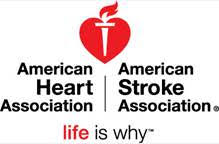 It’s the holidays and for most Americans, that means eating – lots of eating – followed by weight gain and a New Year’s resolution to lose weight. But why not take a healthier approach to eating during this holiday season and beyond?
It’s the holidays and for most Americans, that means eating – lots of eating – followed by weight gain and a New Year’s resolution to lose weight. But why not take a healthier approach to eating during this holiday season and beyond?
The American Heart Association recommends incorporating healthier food options into your routine and avoiding mindless eating or eating when you’re not hungry. Recognizing and planning to avoid these common eating habits can help you manage your weight.
Some people eat healthy meals three times per day with healthy snacks in between. But for many, habits like binge eating, emotional eating, nighttime eating and mindless eating can put people on a path to weight gain and obesity.
Binge eaters are able to control portions sometimes but lose control at other times. A binge is when you eat a lot of food in a short time and it's usually not healthy food. Binge eating is bad for you, especially if you have diabetes.
Emotional eaters eat when they feel upset, angry, sad, lonely or fearful. Emotions such as these can be powerful triggers to eat high fat, sugary or high calorie comfort foods. If you're an emotional eater, you can learn healthier ways to react to your emotions. Emotions usually don't last long — often just 10 minutes to an hour — so you only need to distract yourself from eating for a short time, until the emotion passes.
For many people, dinner is only the start of their nighttime eating. There's nothing wrong with a healthy snack such as fruit, plain popcorn or whole-wheat toast with a little jam a couple of hours after dinner; however, nighttime eating is a problem when you eat large amounts of food or foods high in fat, sodium and calories like cookies, chips, full-fat ice cream, sandwiches or leftovers.
Mindless Eating
Mindless eating is consuming food just because it’s there. It’s eating while distracted – watching TV, working at a computer or texting on our smartphones. It’s eating for emotional comfort instead of for hunger. Simply put, it’s not paying attention to what we eat which can lead to being overweight and even obesity.
Awareness
When you pay attention to what you’re eating, you can make small changes that make a big difference.
Here are some tips toward a more mindful approach:
- Control portions. Especially during the holidays, know that you’ll have more opportunities to eat festive snacks and desserts. You don’t have to deprive yourself, just eat smaller portions and less often.
- Eat when you’re hungry. Just because the clock says noon doesn’t mean you have to eat. If you’re not hungry, wait until you are – just don’t wait until you’re famished because you might overeat. Also, don’t eat just because the food is available. Learn more about why you might be eating when not hungry.
- Plan. Prepare healthy snacks throughout the day. If you tend to get hungry between meals, bring along a 200-calorie, whole grain, high-fiber snack. Fiber keeps you feeling full longer. Learn how a little planning helps your heart, and your budget.
- Slow down. Enjoy each bite and put your fork down while chewing, then take a drink between each bite. This gives your body enough time to trigger your brain that you are satisfied (not necessarily full).
- Pay attention. Do not eat in front of the TV or computer, or while standing in the kitchen or talking on the phone. When you do these things, you’re more likely to lose track of how much you’ve eaten.
- Use technology. As we continue to become increasingly distracted by modern technology, our focus on health can fall to the back burner. But it doesn’t have to be that way. We can actually use our smartphones and other electronic devices to help us. There are now apps that manage food records, count calories, help you track what you eat and even provide guidance on healthy food choices at the grocery store and restaurants.
- Keep a food diary. Write down everything you eat, look at it, then identify why you ate it – was it hunger, stress, boredom? Then look for areas you can make adjustments and incorporate healthy changes. Keeping a food diary is really key to awareness. Most people are surprised at all they’ve consumed when they review what they’ve eaten.
Ready to get started? Download this food diary.
Eating healthier is just one lifestyle change you can make to live a heart healthy life. More than 80 percent of heart disease can be prevented by simply lifestyle changes. Learn more at www.heart.org/gettinghealthy.

